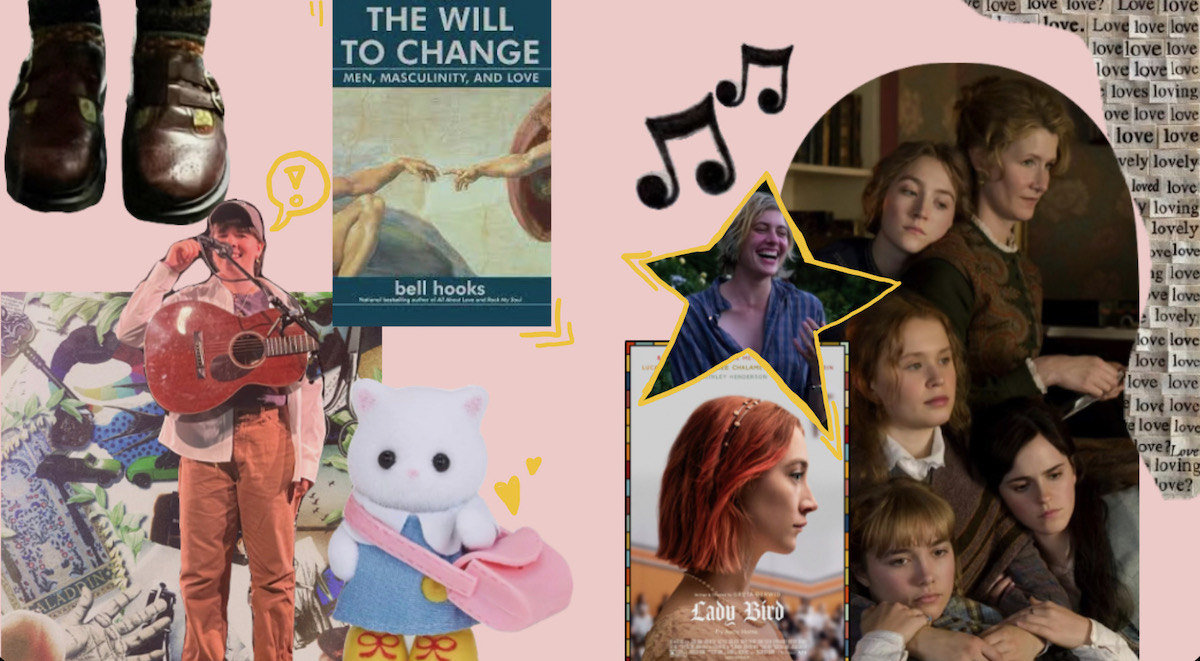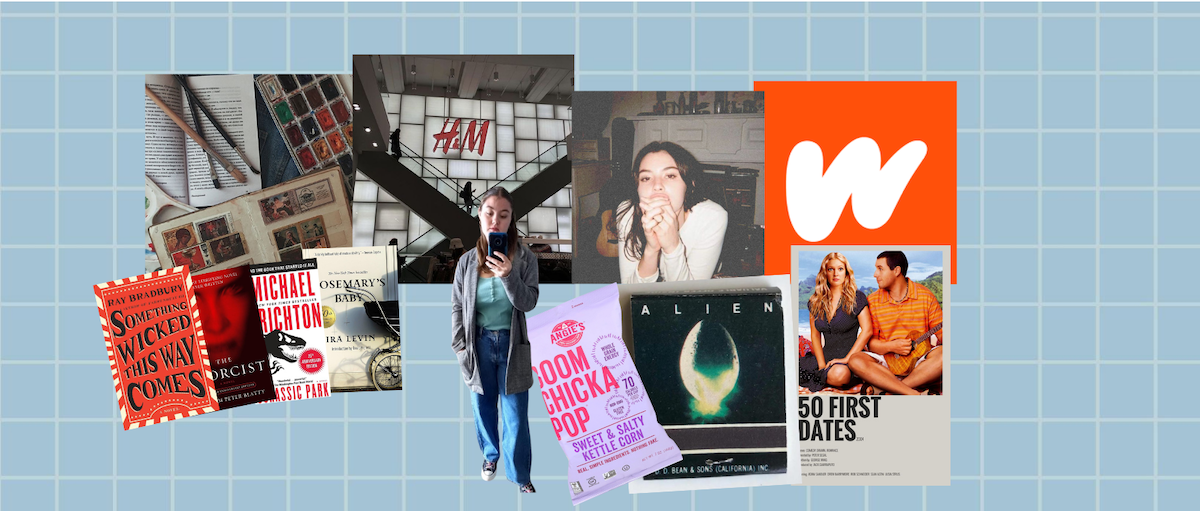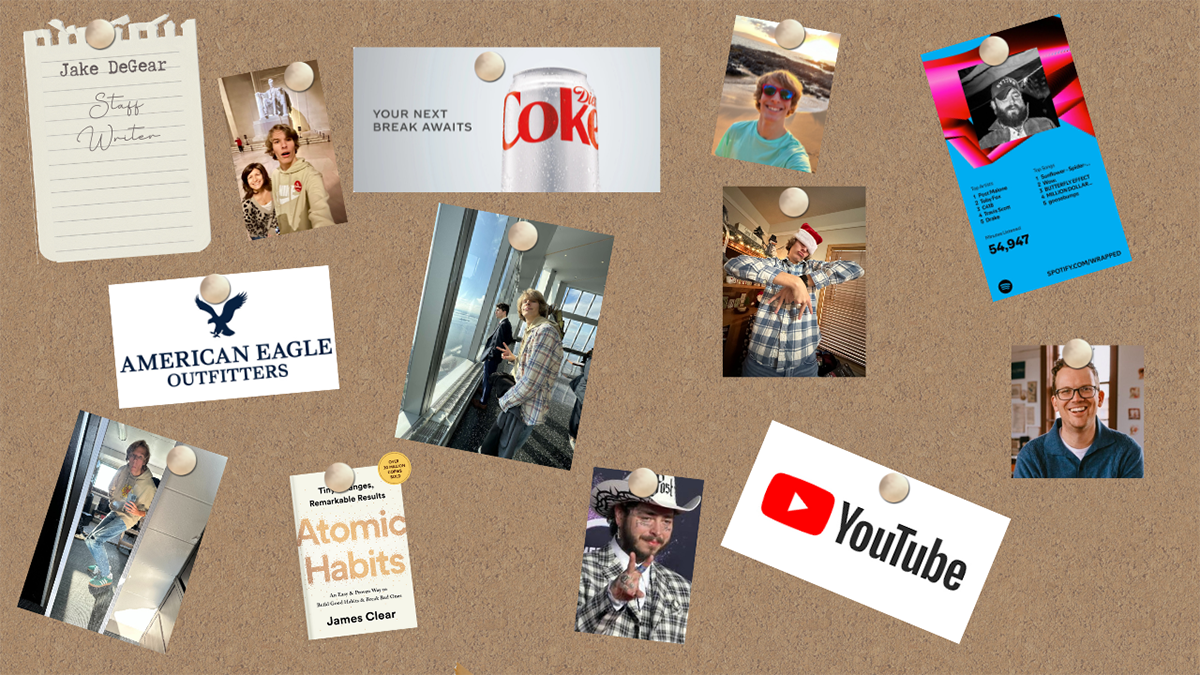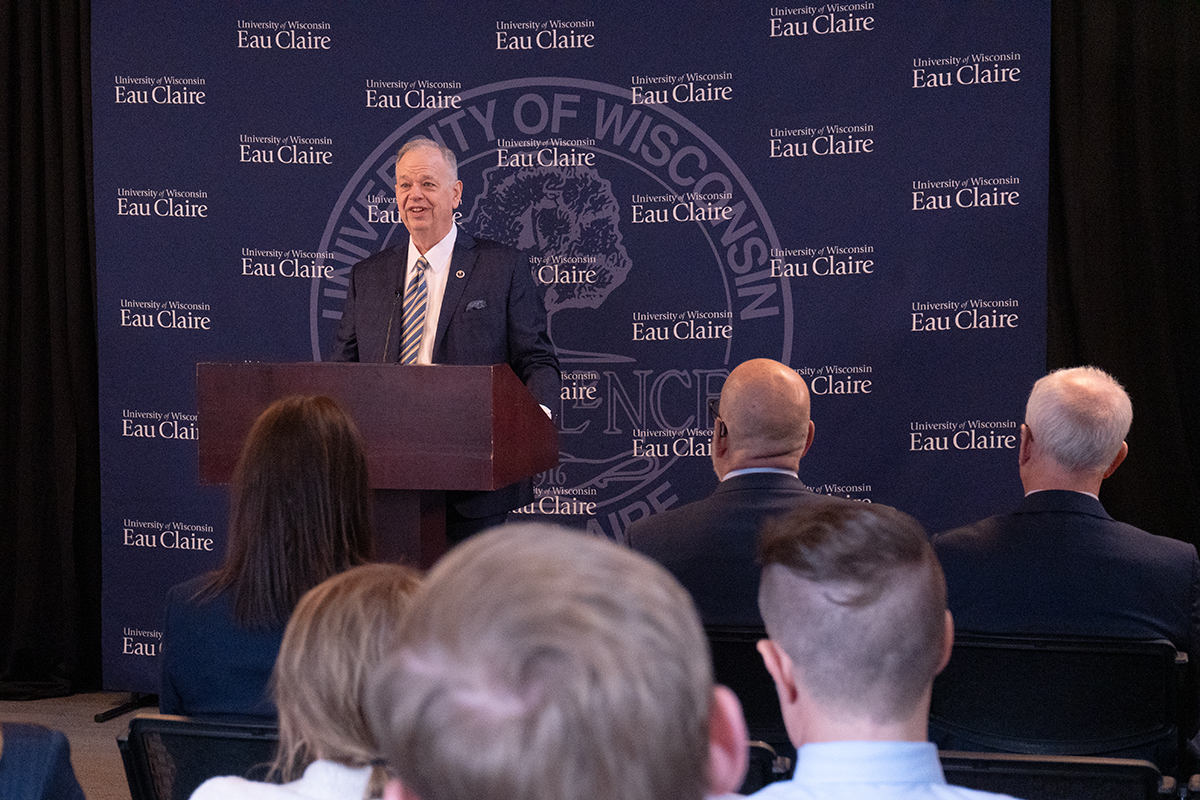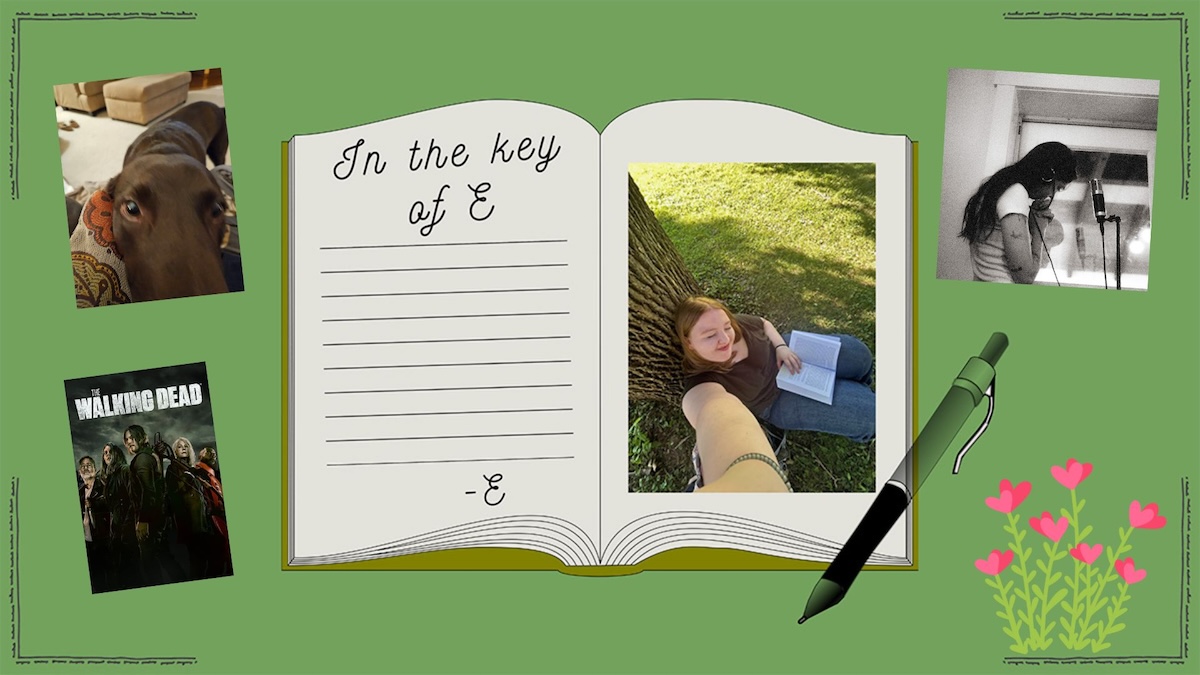Editor’s note: Tastemakers is a new column we’re trying out here at The Spectator where we give you, the readers, a glimpse into what we at The Spectator are interested in (fashion, music, pop culture, etc.) It also takes heavy inspiration from Perfectly Imperfect, a paid Substack with content in a similar format.
This week, let’s meet the editor of the section Tastemakers resides in. Maggie O’Brien is the arts & life editor for The Spectator, and she’s a second-year English-creative writing and English education student at UW-Eau Claire. She consistently gushes praise for the English department and has a soft spot in her heart for eccentric outfits, rainy days and her lovely friends. Let’s hear some more about the things she is fond of.
Calico Critters: I don’t know what it is about these tiny, fuzzy little guys, but I can’t get enough of them. From their intricate, adorable outfits to their velvety faces, Calico Critters could not get any cuter, and I love to sprinkle my car and bedroom with these smile-prompting figurines. They also make for a lovely compliment to my Sonny Angels and other thrifted trinkets. I’ve received many blind bags for birthdays and holidays, and my collection continues to grow slowly but surely. The Calico Critter I most identify with is Persian cat baby Bonnie, and I hope to purchase her someday soon.
Greta Gerwig films: Anyone who knows me even relatively well is aware of my “Lady Bird” obsession (I’ve even written about this film). After viewing a heartwarming video of Gerwig directing “Lady Bird,” I became infatuated with Gerwig’s warmth and humanity in her directing style. I will never stop showering her complicated, warm and entirely relatable “Lady Bird” with praise, and the same goes for her wonderful adaptation of “Little Women,” which I’ve also lovingly reviewed. “Lady Bird” and “Little Women” have become two of my treasured comfort films, and I have Gerwig to thank for both of them. Though both of these movies bring me to tears every time, they are more than worth it. This year, Gerwig released the desperately anticipated “Barbie” and wowed me yet again. I left the theater with a gripping urge to give my mother and just about every woman I’ve ever met a long embrace. Though not entirely without flaw (hello, weird obsession with cellulite that I thought we left behind in the early 2000s), “Barbie” contained some excellent commentary regarding the countless frustrations women deal with on the daily and are oftentimes too afraid to speak up about.
Fun socks: With Mary Janes and Birkenstock Bostons specifically. I preach the idea of not having one “aesthetic,” so my style changes day by day, depending on what I’m feeling and what my plans consist of. But a good pair of funky socks is something I reach for every day. I love the juxtaposition of my polished Dr. Marten Mary Janes paired with a colorful, patterned sock, and my evergreen Bostons offer an excellent opportunity to show off my favorite wool socks in the colder months. My favorite place to find a unique pair is at any thrift store, and the local Savers has presented me with socks featuring anything from butterflies to CDs.
“Dust” by Ida Wenøe and Leith Ross: Just when I thought I’d heard every song by Leith Ross, I encountered this lyrical masterpiece that I have yet to tire of. The album art, a collage of nostalgic and beautiful items, is reminiscent of Leith Ross’ playful, memory-inspired album covers. I noted this immediately, before proceeding to listen to the track on repeat for an hour, in awe of the gentle voices of Leith Ross and Ida Wenøe. With lyrics like “I remember finding out that fairytales were whittled down, monsters live in college dorms, suits and sweats and best friends mouths,” “Dust” sheds light on the tender melancholy of growing up. This song found a special place in my heart just when I needed it.
“The Will To Change” by bell hooks: My ongoing read is one that was recommended to me by my professor for introduction to theory and criticism. After hearing my professor talk about how they lend copies of the book to men and people in their lives who directly or indirectly ask for help, I felt beyond inspired. The day after my class, I scurried to my beloved McIntyre Library and checked out a copy of “The Will To Change.” In the introduction of her book, hooks declares that she thinks men are capable of emotional expression and positive change with the right direction and thought processes. Since then, hooks has been challenging many misandrist thoughts I’ve had very recently and I’ve been thinking about situations involving men in my life in a new, more optimistic light.
O’Brien can be reached at obrienml0364@uwec.edu.

